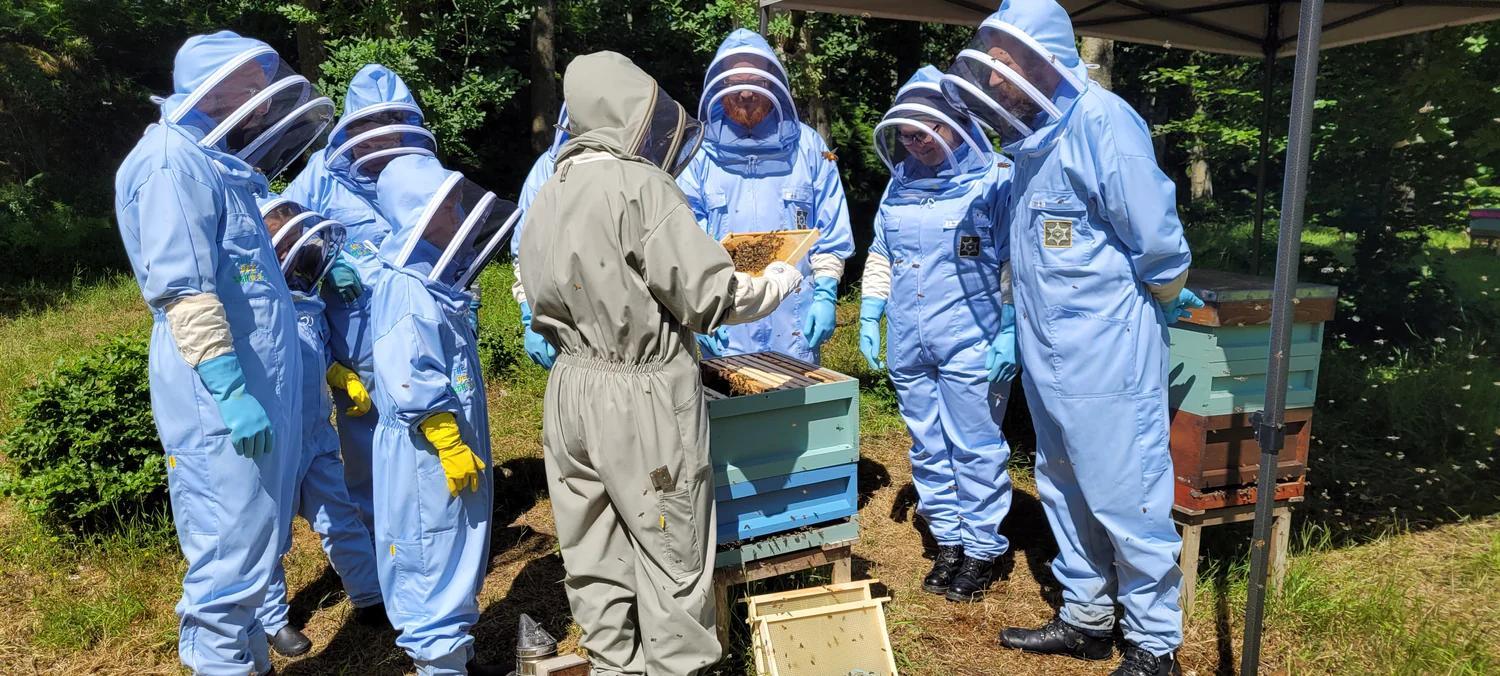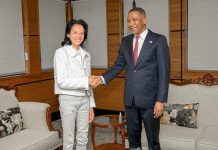Africa-Press – Botswana. Along Selebi-Phikwe/Serule road sprawls a multifaceted facility dubbed Phokoje Farm Bee School that sits on a 7.1-hectare chunk of land dedicated to bolstering the country’s food security efforts.
Founded by Mr John Langeveld, the facility in Phokoje near Selebi-Phikwe was conceived to support initiatives such as the Selebi-Phikwe Citrus Fruits Project by enhancing the pollination process.
Mr Langeveld, a Motswana of Zimbabwean descent and an experienced beekeeper, emphasized the critical role that bees play in maximizing agricultural output.
Highlighting the significance of pollination, he explained how honeybees contribute to the pollination of citrus fruits by visiting various flower types, with a single bee making 12 or more trips to and from the hive in a day, thereby significantly increasing citrus fruit yields.
Therefore, Mr Langeveld underscored the critical role bees play as valuable agents in cross-pollinating crops and fruit trees, thus highlighting their contribution to maximizing yields for farmers.
He noted that efficient pollination could potentially boost yields by up to 30 per cent, emphasizing the significance of leveraging this opportunity to meet Botswana’s citrus fruit demand.
He emphasised the pivotal role bees play in enhancing food security, citing their production of honey as a valuable dietary source with numerous health benefits.
He said the honey’s potential to boost libido adds to its significance, underscoring the holistic advantages of beekeeping initiatives.
With its diverse array of projects, including horticulture, orchards, nursery, and maize cultivation, the facility serves as a comprehensive agricultural hub.
At its core lies a crucial focus on beekeeping, championed by Mr. John Langeveld, aimed at bolstering food security initiatives, particularly within the Selebi-Phikwe citrus fruits project.
Supported by organisations such as the Food and Agriculture Organization (FAO) and the Ministry of Agriculture, the bee school strives to empower Batswana with essential beekeeping skills, in alignment with President Dr Mokgweetsi Masisi’s vision of fostering innovation and economic resilience.
Mr Langeveld underscored the significance of the school’s curriculum, which covers not only beekeeping but also nutrition farming and Kamane stingless bee production.
These components play a vital role in enhancing food security by producing pollen and honey, which in turn boosts the immune system.
Drawing inspiration from the success stories of South African farmers, who have effectively utilized bees to surpass local and export market demands, Mr Langeveld envisions similar achievements for the Selebi-Phikwe citrus fruit project.
Since its inception in 2023, the school has graduated approximately 60 individuals, all of whom are actively contributing to various agricultural sectors to bolster food security.
As the school prepares for another cohort of over 30 students, Mr Langeveld anticipates further advancements in beekeeping management, with a curriculum encompassing both theoretical and practical aspects.
Armed with skills acquired during training, graduates are well-equipped to strategically position bee hives in crop fields or citrus projects to maximise output.
For More News And Analysis About Botswana Follow Africa-Press






